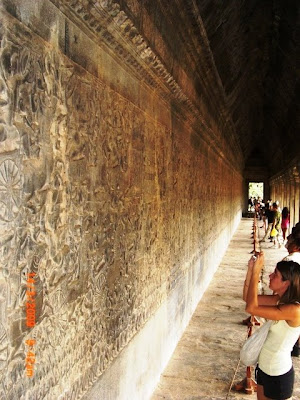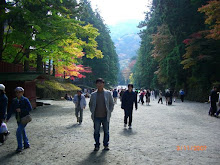 Perhaps I don't need to tell the name and business of my new company. It is a well-recognised and straight-forward name. However having studied in Japan for over three years, I found that I am not familiar with the way most Cambodians and my colleagues pronouce the name: it sounds like Thai rather than Japanese.
Perhaps I don't need to tell the name and business of my new company. It is a well-recognised and straight-forward name. However having studied in Japan for over three years, I found that I am not familiar with the way most Cambodians and my colleagues pronouce the name: it sounds like Thai rather than Japanese.This is my second job upon returning to Cambodia. It seems that I like the job more than the previous one. Of course, it is not because the businesses are completely different. I feel that I like color so much (maybe because my eye-sight is not good!). The slogan: Working Beautifully Everywhere is also stimulating and rewarding.
It seems that my position is bigger than before, but having worked for a while, I dare say that the position and the job description on the paper do not really stipulate your authority and your job duties. Although my title in the previous company is an Assistant Manager, my real responsibility and authority are like General Manager, having access to all information and have the right to stamp!
Anyway to have a good start, I care more about the nature of the job rather than the size of the company and the position. At last, I get the job I want: holding a managerial position in sales and/ marketing. The next step is to learn all the tips and tricks and overcome awaiting challenges, while preparing for my next plans.




















 At last, the day I had been waiting anxiously has come: Sucessful thesis defense. That is the end of my student life in Japan. Will have to face a new life when going back to Cambodia. For the time being just enjoy my last two months sightseeing. Feel like missing the spring and fall here before going.
At last, the day I had been waiting anxiously has come: Sucessful thesis defense. That is the end of my student life in Japan. Will have to face a new life when going back to Cambodia. For the time being just enjoy my last two months sightseeing. Feel like missing the spring and fall here before going. 










